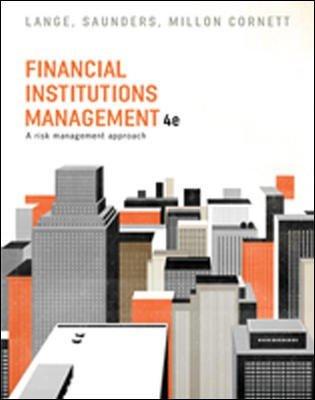1.Chase Bank holds a $200 million loan to Argentina. The loans are being traded at bidoffer prices...
Question:
1.Chase Bank holds a $200 million loan to Argentina. The loans are being traded at bid–offer prices of 91–93 per 100 in the London secondary market.
If Chase has an opportunity to sell this loan to an investment bank at a 7 per cent discount, what are the savings after taxes compared to the revenue selling the loan in the secondary market? Assume the tax rate is 40 per cent.
The investment bank in turn sells the debt at a 6 per cent discount to a real estate company planning to build apartment complexes in Argentina.
What is the profit after taxes to the investment bank?
The real estate company converts this loan into pesos under a debt-for-equity swap organised by the Argentinean government. The official rate for dollar to peso conversion is P1.05/$1. The free market rate is P1.10/$1. How much did the real estate company save by investing in Argentina through the debt-for-equity swap program as opposed to directly investing $200 million using the free market rates?
How much would Chase benefit from doing a local currency debt-for-equity swap itself? Why doesn’t the bank do this swap? LO 12.6
Step by Step Answer:

Financial Institutions Management A Risk Management
ISBN: 9781743073551
4th Edition
Authors: Helen Lange, Anthony Saunders, Marcia Millon Cornett






